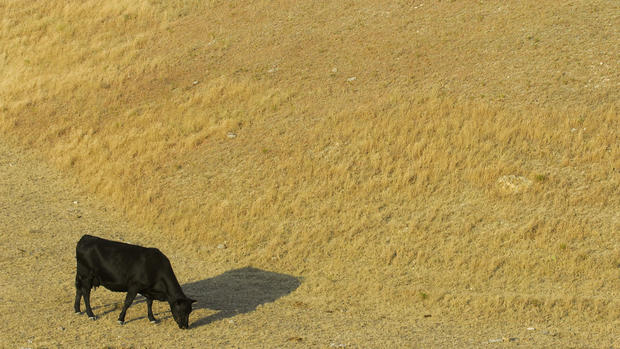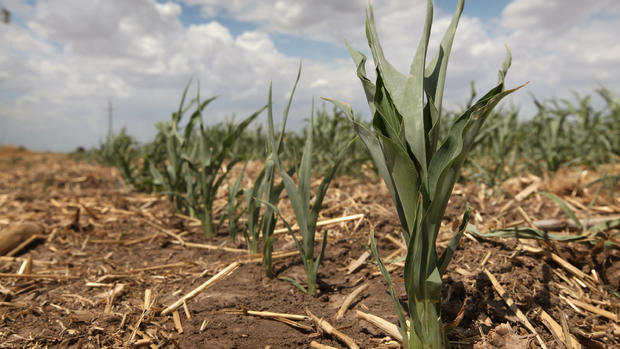How a drought affects the Mississippi and commerce
(CBS News) ST. LOUIS - The weather may be colder, but drought is still a major problem. About 62 percent of the country is in drought. For more than 20 percent, it's extreme or even worse. And it has brought the mighty Mississippi to its knees.
The Coast Guard is repositioning buoys near St. Louis to direct barges away from the shallows narrowing the Mississippi.
Colonel Chris Hall and the Army Corps of Engineers have tried to keep pace with the drought, dredging shipping lanes 24 hours a day since June.
Asked if this is a matter of things will get worse before things get better, Hall said, "Mother nature has the last say in that. When we talk about water available, that's the real issue."
But barge operators argue the Corps has another option 600 miles away -- where water from the Missouri River needed upstream by farmers and residents is held by the Gavins Point Dam. Each December, the Corps stops its flow into the Mississippi to conserve those water supplies for the upper Midwest.
Mississippi River dropping more slowly than expected
U.S. drought worsens after weeks of improvement
"What the industry has asked Congress, and the president, or some higher authority to the Corps of Engineers," said Mark Fletcher, "is to get extra water off the Missouri River Basin together."
Otherwise, Fletcher's 200 barges must carry less cargo or risk running aground. That means more trips with lighter loads, costing him $100,000 a week.
"So the shippers are going to have to charge more, which means they're going to pass it on to the consumer," he said.
Twenty-percent of the country's coal and 60 percent of America's grain exports are shipped on the Mississippi. Although there aren't the only way to ship the material, Fletcher said: "But they are the cheapest way."
Stranded barges have already stopped river traffic for hours. Col. Hall said he's sympathetic, but his job is to look beyond this winter.
"What we do know is these droughts are not typically one-year events...and we are in the beginning of the drought."
So Mark Fletcher and the barge industry are making plans too for lower water and the economic damage they worry is about to roll down the river.


